|
All the news from Musical Futures International
|
|
Musical Futures Champion Gary Posner recently wrote an article describing how he has embedded Musical Futures approaches into his school in West Africa.
Click to read his inspiring story about Musical Futures at The International School of Dakar. Musical Futures is coming to Dubai and Asia in 2017-18. If you would like to find out more, come to a workshop or talk to us about a consultancy tailor-made for your school
0 Comments
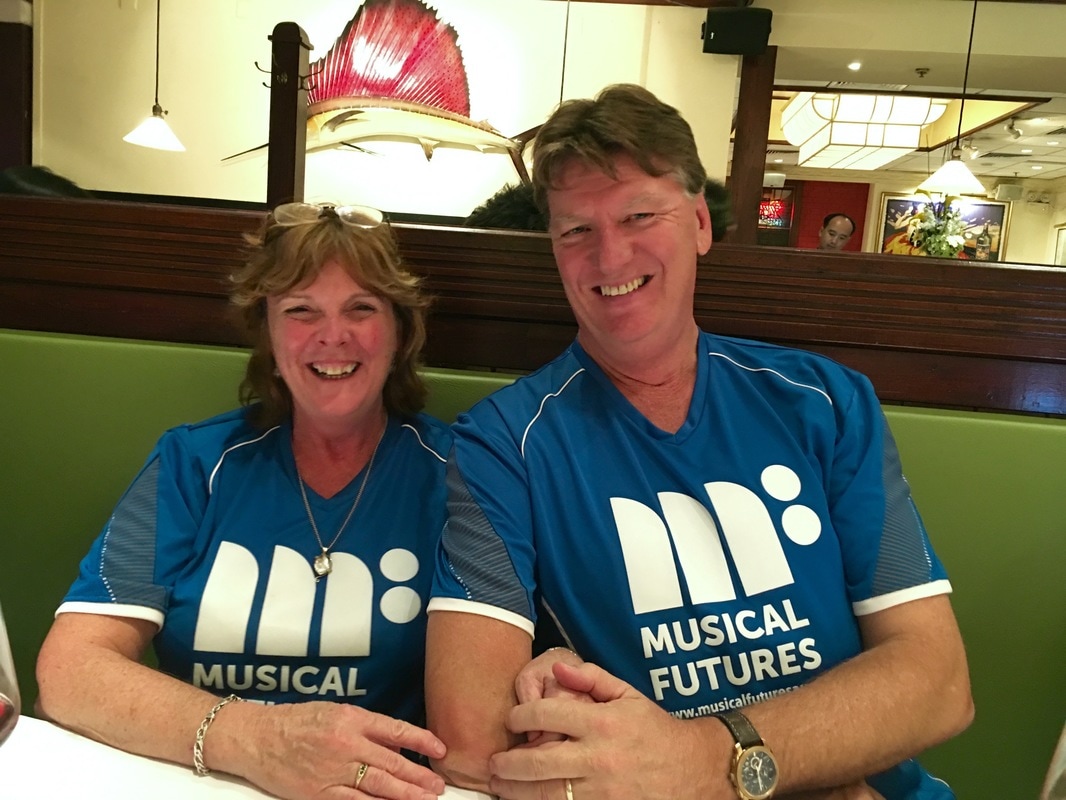 Our next Musical Futures Asia workshops are now open for bookings. Register now to be part of Musical Futures International. For over 30 years music has always been part of my teaching. Although I was never classically trained I learned a few basics on guitar as a child and at teachers’ college had a go at a few other instruments but concentrated mostly on classroom based music, percussion, recorder, etc. I had a few opportunities to be a music specialist but even when I wasn’t I made sure I was either working on productions or running the choir or small percussion groups at lunchtime or after school. Musical Futures came into my life about 10 years ago when I was AP at Trafalgar Primary School in Gippsland. I had originally been appointed the arts coordinator there, so had for many years taught both regular classroom and classroom music. Although at this stage I was no longer in charge of music I was certainly still part of the team. We had always had a pretty good music program with enthusiastic and talented kids so when we convinced Ken to let us run it with our year 5/6 students we never looked back and became the first of many Primary schools that now choose MF as their way of learning. Skip forward a few years and life turns full circle and I am just finishing my second year at an international school in Hong Kong where I have had the opportunity to step back into teaching and introduce Musical Futures to a whole new generation of children and a totally different collegiate group. Raelee recently hosted our Musical Futures Hong Kong workshops at the Yew Chung International School in March 2017. 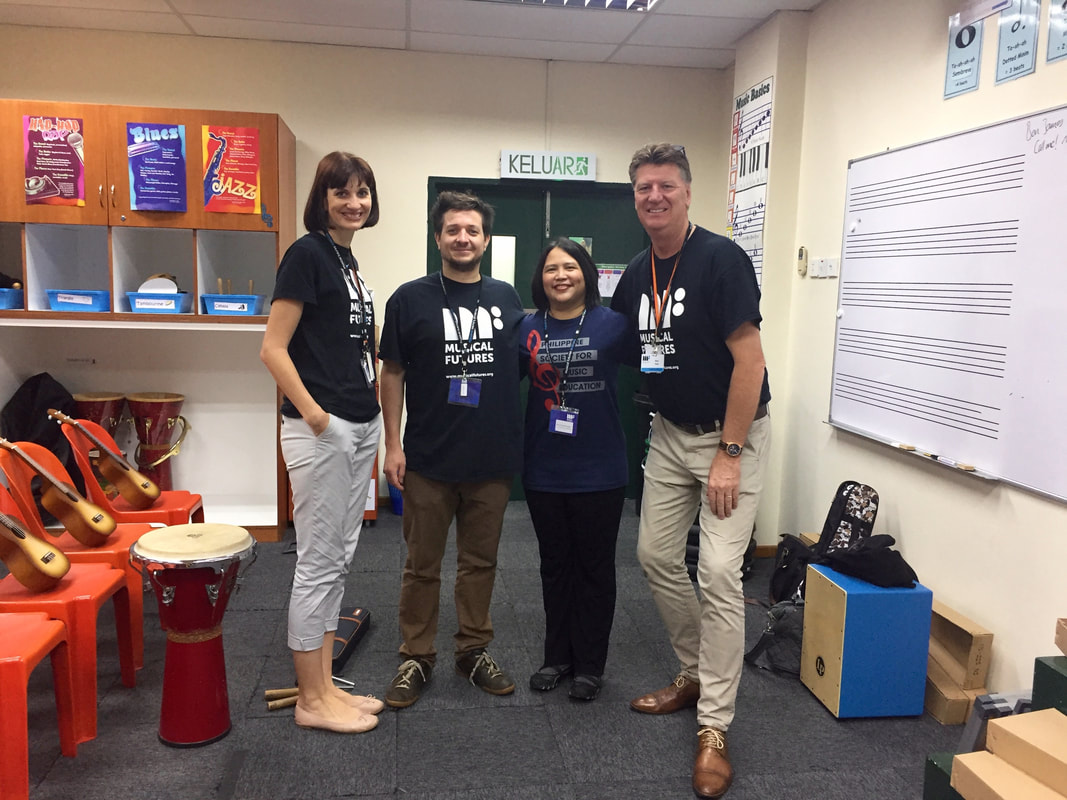 Steve is Head of Academic Music at Shrewsbury International School, Bangkok, Musical Futures Asia Co-Ordinator and Apple Distinguished Educator 2017. Steve will be hosting our Musical Futures Asia #Bangkok workshops in November 2017 at Shrewsbury International School, Bangkok. Musical Futures has changed a lot over the past 10 years. Back in 2006 as a new teacher I tried In at the deep end using Cameo’s Word Up, the focus was very much on the teacher as the facilitator. My inexperience coupled with bad behaviour and my poor classroom management definitely was not a recipe for success. Jumping forward 5 years, I signed up for the Find Your Voice/Mobile Technology pilot. I knew a lot about using technology to create music but really lacked confidence in leading/ teaching singing so I thought this would be great for me and it was! At the time I was working in an all boys school in North London and the approaches I learnt completely transformed singing in school, suddenly all the boys were singing all the time and loving it. Here the focus was on workshopping as a class, giving students some initial training then sending them off to experiment for themselves- much more instructional and it worked really well. Just Play is the latest programme from Musical Futures, earlier this year I attended a training day with some great teachers from Croydon Music Service finding out more. Originally designed to support non-music specialist teachers in Primary Schools, Just Play has been enthusiastically snapped up by music specialists in both primary and secondary schools. Just Play is a skills building programme for Ukulele, keyboard, guitar, bass guitar and drums. It takes you through from the very beginning- how to hold the instruments, through reading tab, basic notation, chord symbols to being able to play and sing lots of songs as a whole class. I love it because the approach and fantastic resources (that come free with the training) are designed to ensure that students gain mastery of the basic knowledge and skills required for other approaches such as Find Your Voice and In at the Deep End. It perfectly complements them by providing a scaffolded pathway that can allow for the independent and informal learning that has made Musical Futures such a success. I’ve now redesigned my curriculum so that my classes start off with Just Play where they learn all the basics, then we move on to a rapidly accelerated Find Your Voice scheme (now that they can play way more than four chords) through to In at the deep end, where they are now longer throw in at the deep end. They have the knowledge and skills to work independently, to choose their own songs, they know lots of chords but more importantly they know how to learn new ones. It has made a massive difference to my current year 9s ability in such a short space of time. I’m really looking forward to introducing Just Play to my new classes in September and I am excited to see how much of a difference it will make over the long term. Just Play is a million miles away from In At The Deep End and that’s one of the reasons why I love it. Students are not going off into groups to try and work things out for themselves, instead I can stand at the front of the class and using the resources teach, knowing that all of the students are going to be able to learn the basics across a range of instruments and really enjoy themselves at the same time. Steve will be hosting our Musical Futures Asia #Bangkok workshops in November 2017 at Shrewsbury International School, Bangkok. This guest blog was originally posted here on the Musical Futures website and then on Steve's blog . 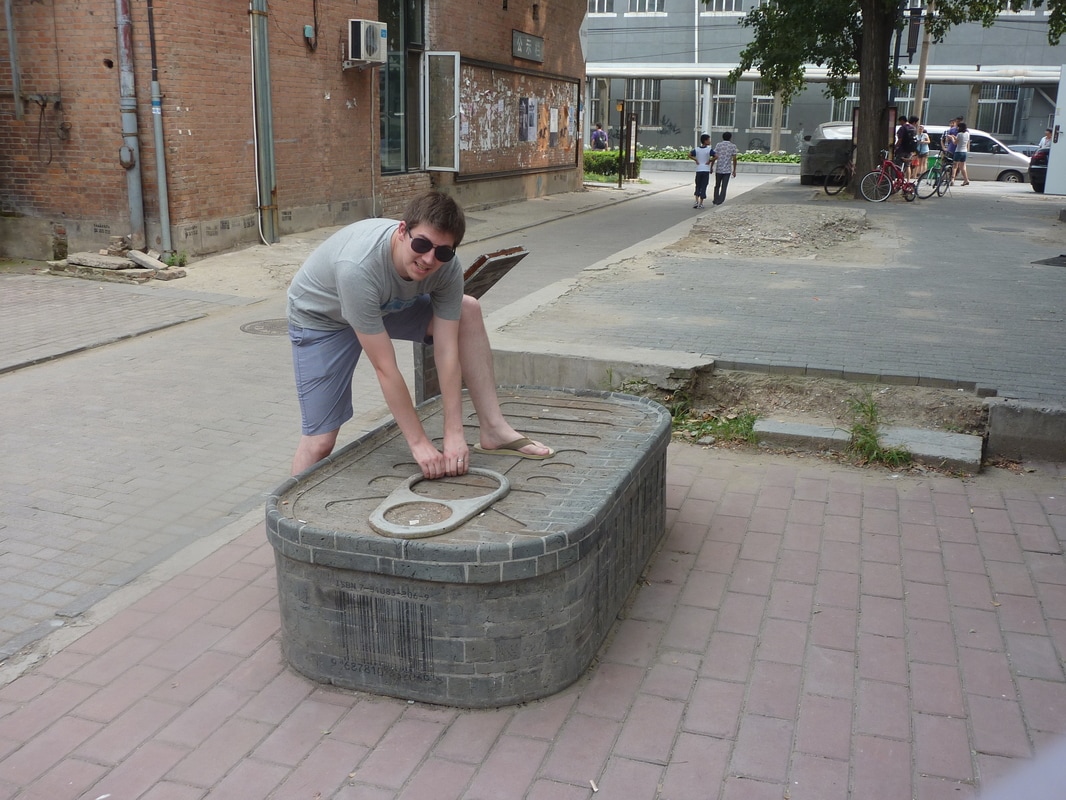 Russell Lee Grant is Lead Music Teacher, Xiamen International School, China Musical Futures workshops will take place at Xiamen International School Jan 13th and 14th 2018. Currently I am teaching at Xiamen International School where I have been the Lead Music Teacher from August 2015. I teach the Middle Years and IB Diploma programme while lead a number of ensembles as part of the departments activity programme. I trained in the UK at Newcastle College studying a BA (Hons) in Jazz, Pop and Commercial Music, focusing on the bass guitar and alto saxophone. I later completed a PGCE in Music Education at the University of Sunderland and most recently completed an MA In World Music Studies at Sheffield University. After teaching for 3 years in the UK, I chose to move to Taiwan and taught at Taipei European School. From 2010 I worked for 5 years for the British Independent international network Dulwich College International. During this period I took up positions of Key Stage 3 Coordinator and Head of Instrumental Studies at Beijing and Head of Music at Seoul. I first came across Musical Futures while I teaching in the UK around 2005. During that time I was teaching Music as part of the National Curriculum and The BTEC National Diploma. The department that I was a part of were piloting a range curriculum and teaching strategies with the aim to increase intake at Key Stage 4 and make classroom music making more inclusive and relevant to students’ experiences. What I found in Musical Futures was a framework, which not only met our needs but enhanced the overall learning environment of our students. Teaching strategies such as informal learning and its its 5 principles helped students tap into their own interests and create music that they were passionate about. As a teacher it enabled me to integrate the teaching of musical concepts through a platform, which was accessible to a diverse student base. Workshopping is placed at the centre of Musical Futures. This form of delivery reminds us as music educators how practical music making and performing should not only be at the centre of the lesson but used to harness and increase creativity and the curiosity within the classroom. Recently, working in an IB school, I have found a number of principles which MF and the IB has in common and helps to support. This includes the focus on collaborative and inquiry based learning where student voice and leadership is celebrated. The idea of learning from each other and being internationally open minded are all examples of how each framework can help to complement each other. The outcome of implementing MF has resulted in a surge of student led bands, a nosier and busier department and more students initiated concerts and musical activities. Musical Futures workshops will take place at Xiamen International School Jan 13th and 14th 2018. Musical Futures International represents the growth of Musical Futures Australia into Asia and beyond. But how did Musical Futures, originally a grant funded music research project find its way to the other side of the world?
In this article first published in Music Teacher Magazine in 2015, Musical Futures Australia Director Ken Owen gives us some of the background behind Musical Futures Australia. Musical Futures Australia offers PD for music teachers across the country. Click to find out more 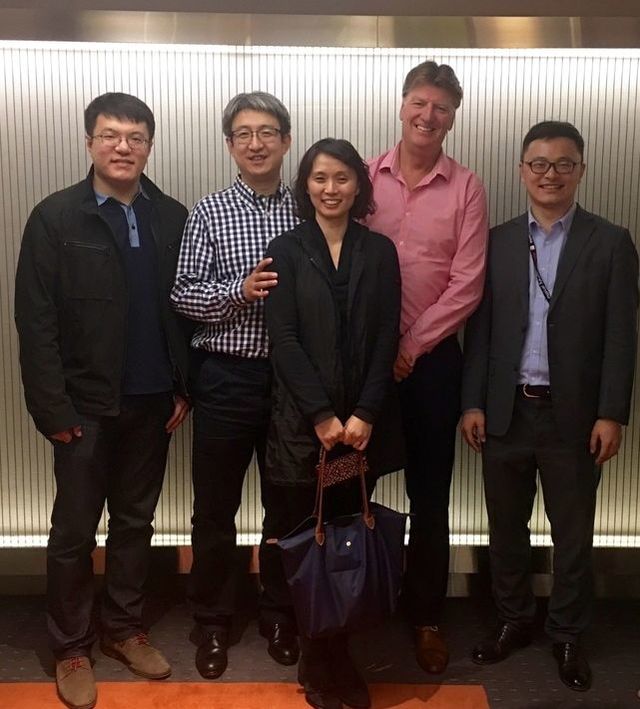 It was great to meet with representatives from the China Musical Instruments Association recently. We discussed common aims to engage as many people with music education as possible, shared our own musical stories and of course no meeting would be complete without some chair drumming! We look forward to continuing the conversation in forthcoming months. 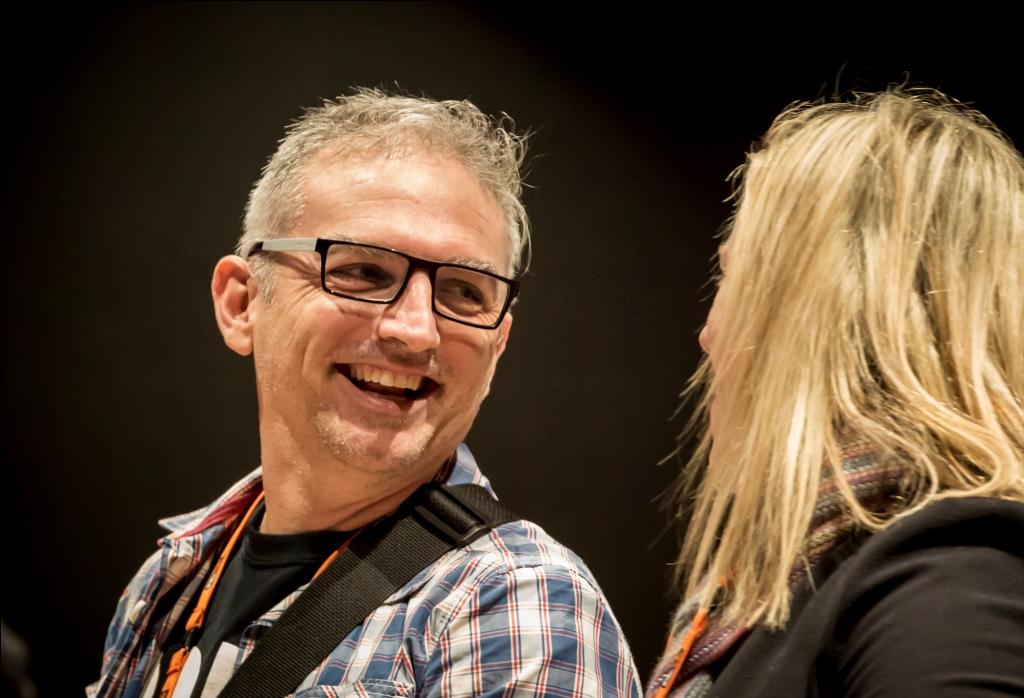 First published on www.annagower.com Anna works as Acting Head of Academic Governance at Trinity College London having previously worked with Musical Futures in the UK since 2004. Working with students and teachers in a variety of different situations and locations has taught me a lot. No matter where you are in the world kids are kids, schools are schools and music is music even when the contexts seem worlds apart. Music education is filled with passionate teachers and practitioners who are working their socks off to try to enable quality and meaningful musical experiences for students who may only ever access music at school. So whilst on the surface the context may seem different, many of the underlying challenges and learning for us as educators is the same. Why do we do what we do, how can we do it better and how can we persuade others of the value of what we do for the kids in our schools who deserve all the benefits that a music education can bring? For the last year, I have been leading music workshops for teachers across the UK, in Australia, America and in SE Asia. As the content of these sessions has grown and developed with each workshop that I do, there have been a few underlying questions that I have started to ask the participants. Questions that I never really asked myself when I was in the classroom, but that I wish I spent more time considering. The workshops are always practical. Everyone plays from the very first session to the end of the day. It’s exhausting and it’s exhilarating. It’s what music is all about. As part of it, teachers become musical learners and experience the content in ways that then ask them to reflect on their own practice and what their students might need in order to be successful and achieve in their lessons. Unpicking the experience, process, learning, understanding is a key part of ensuring the sustainability of what we cover in those training sessions. And so we do this through pondering a few key questions. I have given some thought to the 3 questions that I feel provoke the richest discussion at the end of the workshops. 1) What are your aspirations for your learners when they come to the end of their engagement with music in school, or with your music programme? Is it important to you that they are able to read staff notation or that they can pass a graded qualification in music theory? Be ready to take a music exams course? Many teachers value instrumental skills or an open mind and willingness to listen to a music in a range of different styles and genres with some understanding. But when I ask teachers directly, it’s surprising how few have actually thought about defining and articulating those aspirations beyond the general curriculum information that ‘all students will play a musical instrument and sing’ or that they offer ‘a broad and balanced’ selection of topics. I know what mine are now and I have got it down to an elevator pitch that works for me. It is to create independent, musical, informal learners who can pursue their own individual love of music in any way that is appropriate for them so they can build on the learning and experiences they had in the music classroom at school. 2) What are your own values as a musician and as an educator? For many music teachers, much of their music education would have taken place outside the classroom in instrumental lessons and participation in ensembles outside school. It’s very difficult to be successful at A Level music without having had some form of additional tuition (can you really get to grade 6 level on an instrument with all the associated music literacy and composing skills just through having classroom music lessons once a week for an hour if you’re lucky?). But it’s a very different way of learning music and I’m not convinced it can be replicated in a classroom with 25-30 students, a slightly random mixture of instruments and often just one or 2 rooms. It’s interesting to reflect on how many of our values as musicians influence the answers to question 1 above. Why is it important for students to be able to read music? Why do we want them to be able to follow a conductor? Why do they need to know how many # are in the key of E major or where the viola section sits in an orchestra? Those are things we absolutely needed to know to progress as instrumental musicians and competent composers grounded in a theoretical approach to music learning. But is it right for our classroom learners? What are their values as musical learners, listeners, creators, advocates, fans, participants and how do we consider those as well? Then there are our own values as educators. To offer inclusive opportunities for all students to access music, to ensure that all abilities are adequately supported and challenged, to manage behaviour to allow all students to learn, to create vibrant learning environments and safe spaces to work. Matching up our values with those of our departments, schools and the students themselves takes some thought and often more than a little compromise. 3) Why do you teach what you teach? When I was training as a teacher, one of the school mentors came to run a session on planning to deliver GCSE music. The task was to look at the syllabus and plan a unit of work. Before we presented back our carefully crafted outcomes filled with listening sheets and short guided practical tasks he said that the first thing he wanted to know was what would be the value of that learning to the students. Why had we chosen these tasks, for us or for them? We couldn’t answer. We had chosen to teach things we were knowledgable about and comfortable with but we had planned for our needs not theirs. One of the questions that I always ask now when a teacher asks for a resource for a particular topic is why. Why are you choosing to teach reggae to your year 8? Or riffs to year 9 or instruments of the orchestra to year 7? What will they be learning that is in line with your defined values and aspirations and which builds in progression through your curriculum from a start to an end point? Once you know the answers to those questions then you can think about an approach to deliver the learning that is appropriate for all learners, but getting the approach right isn’t enough if the content hasn’t really been thought through. I will continue to ask these questions and refine my own answers to them. Meanwhile why not share your elevator pitch or ask your team at your next meeting if they can define the values that underpin your lessons, curriculum, department. If nothing else it’s a great reminder of why we do what we do every day, even when some of the every day challenges of getting the job done can sometimes seem too daunting to overcome If you have a blog post or story to share please email info@musicalfuturesinternational.org 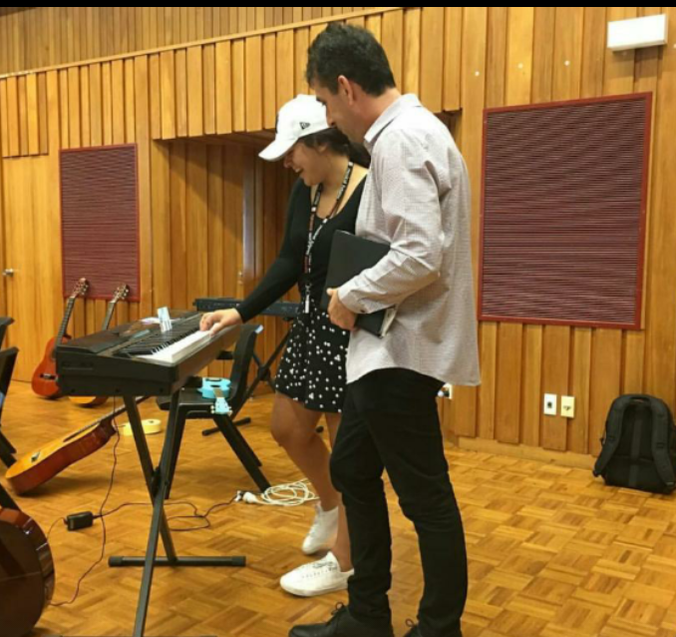 Dino Azzollini is Music Teacher at Lalor North College, Melbourne, Australia I have been teaching Music at Lalor North College since 2004 where we initially tried to set up a traditional Music Program such as the one I had successfully set up at a previous school. However this model didn’t seem to be connecting with the students I had in front of me. I then spoke with the Instrumental Music Teachers and we agreed to change our approach to include a more contemporary/team teaching, popular music focus. It quickly became one of the most popular electives at our school. As a result of this, we were asked by Musical Futures Australia to become a pilot school in 2010. A few years later we became a Champion School for Musical Futures. It was 2015 when we were hosting one of our State Wide MF Teacher Training Days where it was noted by a presenter that we have many NZ / Pacific Islander students in our school music program. I went on to explain how Musical Futures Pedagogy resonates well with our students culturally. Students enjoy jamming, choosing and developing their own repertoire in their friendship groups, and then presenting it to a large audience. The success of their performances makes them feel connected to the school and does wonders for their self-confidence. As a result of the NZ / Pacific Islander students drawn to our Music Program, I made the suggestion that maybe a MF PD could be run in New Zealand. In March this year, I nervously found myself in Auckland with Ken Owen, Director of Musical Futures Australia. We ran MF Workshops for two days with 50 enthusiastic and very talented music teachers from all around New Zealand, as well as one of my ex-students Metoyer Manuel from Lalor North College who since moved back to NZ. Metoyer participated in the workshops and was interviewed by Ken, regarding her positive Musical Futures experience in Australia. We also listened to one of her many excellent You Tube videos (see below) which was very well received by the NZ teachers. Metoyer has stated that she was very proud to have been part of the Musical Futures NZ Workshops and that music is still a massive part of her life and general well-being. "The last two days at University of Auckland have been so powerful and amazing, I’m so proud to be part of the Musical Futures Program, and getting the message across to teachers nationwide about the importance on how music can help develop a child’s brain, emotion, mentalities and so much more…Maybe it doesn’t give you solutions in life, or to your problems, but it has always been there for me.” Metoyer Manuel MF is a powerful, hands-on approach to music making which resonates with all students. For me it is very rewarding to be able to engage students in a fun and practical way. You can read more about our Auckland workshops and see our full Musical Futures International training program here I’ve been incorporating Musical Futures philosophies and ideas in my classes since I became a teacher in 2007, but more formally when I began at my current school in 2014. I am a jazz pianist by trade and education (graduating from the Queensland Conservatorium of Music majoring in jazz piano). I began teaching in 2007 and learned most of what I know about teaching through practice from the incredible Head of Music at Marist College Ashgrove, Andrew Butt. Working with him really shaped my teaching philosophy so when I found out about Musical Futures I was very excited that there was a thoroughly researched and well-designed program that validated my thoughts about what music education should be like! I am lucky enough to be the Head of Music at St Paul’s School in Brisbane, Australia. In this role I get to help shape the curriculum and teach classes ranging in age from Prep-Year 12, as well as overseeing the Choral Program, accompanying choirs and soloists and working with our brilliant classroom and instrumental teachers to implement a great, well-rounded education for our musicians. For me, Musical Futures is relevant, engaging, practical, rad and fun! I listen to everything! I love too many things to narrow it down but the most recent albums I’ve been listening to on my lovely record player include Tom Waits, Ella Fitzgerald, Portishead, the Beastie Boys, Radiohead, Duke Ellington and Michael Jackson. Kellee Green is Musical Futures chat co-ordinator and runs a weekly chat for Musical Futures International teachers every Wednesday. You can get involved by joining our Facebook group, liking the Musical Futures Australia Facebook Page or follow @mufuinternat on Twitter Daniel is a teacher at Artistic Education Foundation (Fundação de Educação Artística) in Belo Horizonte, Brazil, and has been there since 2007. He teaches music, piano, music ensemble and choir. He also works as a pianist, drummer and arranger in musical ensembles, with an emphasis on popular music.
I graduated with a Bachelor’s Degree in Piano from the Federal University of Minas Gerais, the same university where I completed my Master’s degree in Music Education, and where I am now working towards his PhD, also in Music Education. My research is about Creative Learning, Collaborative Learning and Musical Leadership. Although I graduated from classical piano, my “inner musician” was born in popular music, playing by ear! Besides the piano, I also play drums, guitar and bass – instruments that I grew up with. Now I am trying to play a typical Brazilian instrument: the viola caipira. But one of the practices that I value most in music is choral singing. I am always connected to choirs and vocal groups. I fully believe that the best music school a person can have is a choir. I was introduced to Musical Futures in 2009 by professors Heloisa Feichas (Brazil) and Robert Wells (UK). Since then my interest in MF has grown. After attending some Musical Futures training last year, I began to incorporate the MF philosophy and ideas into my practice as a music educator. Musical Futures is Collaborative. Creative. Effective. Empowering. Essential. I would still say another five words: Inclusive. Inspiring. Freedom. Motivating. Realistic. I always listen to a very varied repertoire, but in the last few days I have been listening to Bach, Milton Nascimento, Keith Jarret and Brahms. You can see more of Daniel’s work on YouTube here. 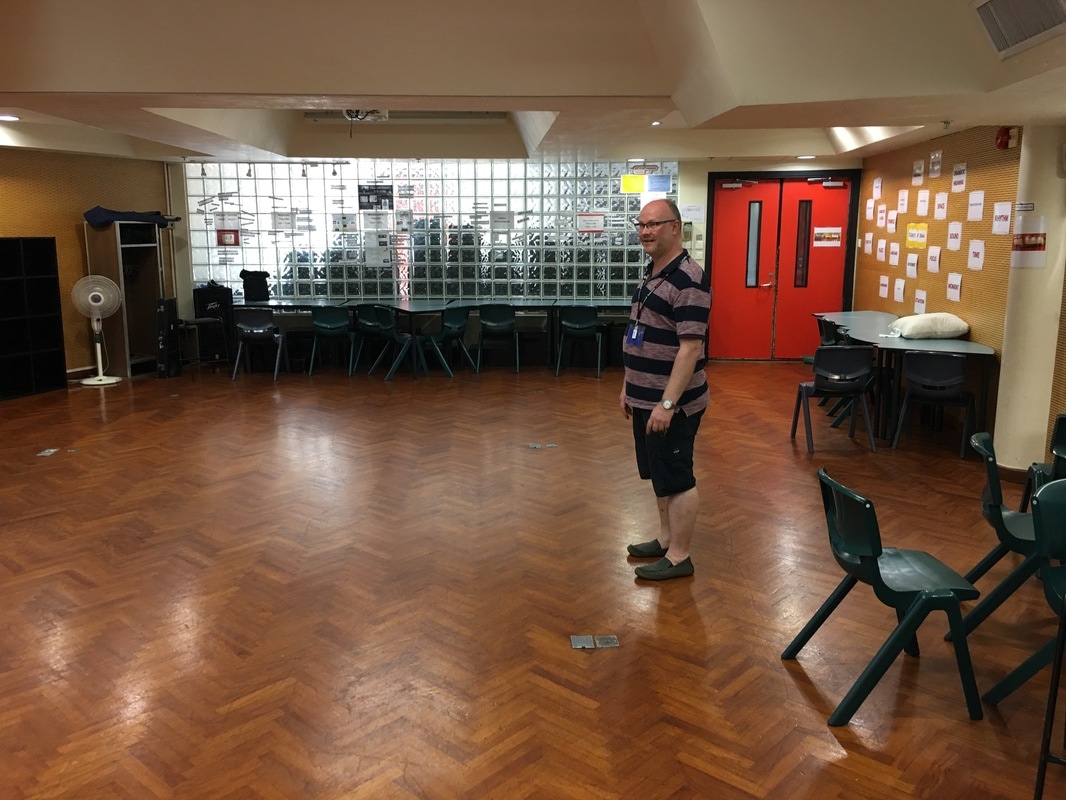 I am the secondary specialist music teacher at the Australian International School Hong Kong. I trained in the UK at Huddersfield University and Trinity College of Music, London studying organ and harpsichord performance. I also completed an MA in Psychology for Musicians at Sheffield University. I taught in the UK for about 5 years before moving to Hong Kong in 2001 as Director of Music for Yew Chung International School, Secondary division, and then to the Philippines in 2006 to British School Manila and King’s School Manila as Director of Music, following this I returned to Hong Kong and AISHK in 2014. I have always believed that the music classroom should be about making music and performing and that every child should be given the opportunity to learn music in their own way. I first learnt about MF shortly after I moved to Hong Kong for the first time and had tried incorporating some of the original ideas from the Musical Futures Resource Pack (2nd edition). I’m not sure everything necessarily worked as intended, but it was a step towards informal learning and beginning to understand better ways to motivate my students. Once I had moved to AISHK I was given the opportunity to visit Australia and attend “The Big Gig”. Whilst some of the ideas were very similar to things I had tried in my classroom, the whole package of Musical Futures began to fit into place and how I could use it in school. I have been particularly looking at year 8’s and incorporating rapping, with chair drumming and songwriting as these projects work well with each other and at this age group. I also found that ‘Just Play’ supported the idea of ‘I can’ – where students feel they can achieve because they are able to simply play along at their own level. Music is taught from K – 12 at AISHK although it becomes an option subject at year 9. We follow the NSW curriculum although students can either opt for HSC Music 1 or 2 in year 11 or choose Music through the IB Diploma. The school has about 1,100 students of mixed nationality. A fair number of the school population is transitory as parents return to Australia or their home countries following a few years of expat living. The music programme is part of the performing arts faculty and we run a major musical every 2 years. Students can learn an instrument through our instrumental programme and we run an orchestra, wind band, string ensemble as well as primary and secondary choirs and rock bands. There are regular opportunities for performance including in assemblies, recitals and showcases. Most class music lessons are practical oriented using either Musical Futures or Orff approaches to learning. Musical Futures Asia has its own Facebook Community, if you are teaching music in Asia please join us! Our next workshop in Asia will take place at Shrewsbury International School, Bangkok in November 2017 Do you have a Musical Futures story? Email info@musicalfuturesinternational.org to share yours. 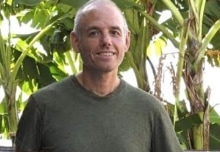 Gary is the Head of the Secondary Music Department at the International School of Dakar, Senegal. I only came to Dakar last year. When I arrived, I had a giant music room with 16 Djembes, 8 damaged nylon string guitars and 8 steel string acoustic guitars. I tried a teaching music based around the drums, but my middle schoolers (age 12-15) just weren’t very interested. With the help of a parent, we repaired some of the instruments, including 2 damaged drum sets and then had the students playing in bands. When I told a friend back in the US what I was doing, he suggested I read Lucy Green’s Hear Listen Play. I did and that led me to Musical Futures. I read everything I could on the website and wrote a grant to get enough equipment to create, at least, 3 “silent” practice spaces. I got all the equipment on September 22, 2016. Spent 3 solid nights and days wiring and was then ready to try In The Deep End. Our school year started in early August. I began the semester with a modified version of Just Play. I had already made my own resources for songs like Demons, Photograph, Viva La Vida, etc. We did body drumming instead of chair drumming. But basically it was the same. The students were excited being able to play from day 1. Their parents were so excited with how engaged they were. Our school is on a trimester schedule, so I am almost done with my 8th graders (15 years old) and will get the 6th graders (12-13 years old) next. With the 6th graders, I am anxious to use some of the Find Your Voice resources. I got so many ideas from the workshop at the Music Learning Revolution in the UK in 2016. Musical Futures for me is fun, authentic, engaging, timely, organised I am currently listening to every pop song that resonates with a middle schooler like Heathens, Cake by The Ocean, Lost Boy, Marry Me, Riptide, etc. Do you have a Musical Futures story? Email info@musicalfuturesinternational.org to share yours. 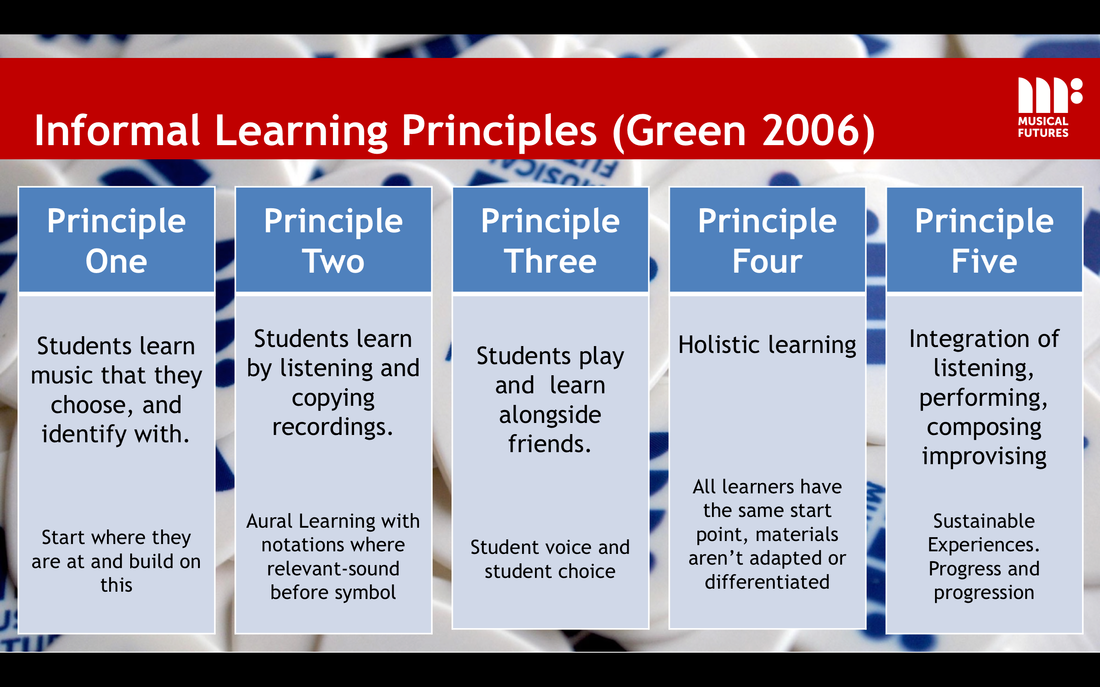 A guest blog from Anna Gower (first published on www.musicalfutures.org) The new specifications for GCSE music in the UK and across our international schools networks have well and truly kicked in. Often labeled as ‘more demanding’, they have triggered much debate about how music programmes can prepare pupils for the new challenges of the formal examinations syllabus. At Musical Futures, we often hear this question at our training events. ‘How does adopting a Musical Futures approach prepare students for GCSE/IB/VCE?’ I’ve spent some time reflecting on how best to answer this question and have come up with the following thinking points. Making content relevant Musical Futures is an approach to music teaching and learning. Recently, Musical Futures has developed a series of new resources designed to get teachers started, but the core pedagogy can be lifted and applied to any content. Teaching notation and theory As an approach, Musical Futures doesn’t negate the use of relevant notations where appropriate. It simply asks that notation isn’t the first and only form of music learning for students. The value of learning aurally remains central to the Musical Futures approach. We have plenty of examples where students make notation work for them. Pupils seek out ways to record and replicate their music visually. Familiarity with notation in the right context can be a powerful way to make music more accessible. This helps students to rise to the challenge of following and understanding a score at GCSE. Building skills Performing, listening, responding, composing and improvising are all key to how music is created and shared. These skills form a key part of assessment in GCSE music. Musical Futures encourages students to explore and develop through playing and responding to music from the start. They build musical skills, develop understanding through participatory musical experiences. Key words and concepts In Musical Futures lessons, teachers act as facilitators and coaches. They work alongside students to support them in setting and achieving shared learning objectives. Using musical key words and concepts in context helps give relevance to what can otherwise become a bullet list of vocabulary to be memorised and repeated under exam conditions. Engagement and confidence Musical Futures improves engagement with classroom music. It leads to increased uptake of music beyond the point at which it is statutory. What better way to start a music examinations course than with learners keen and ready to embark on the next stage of their musical experience? Discuss these and other relevant issues in music education by joining our international teacher community. 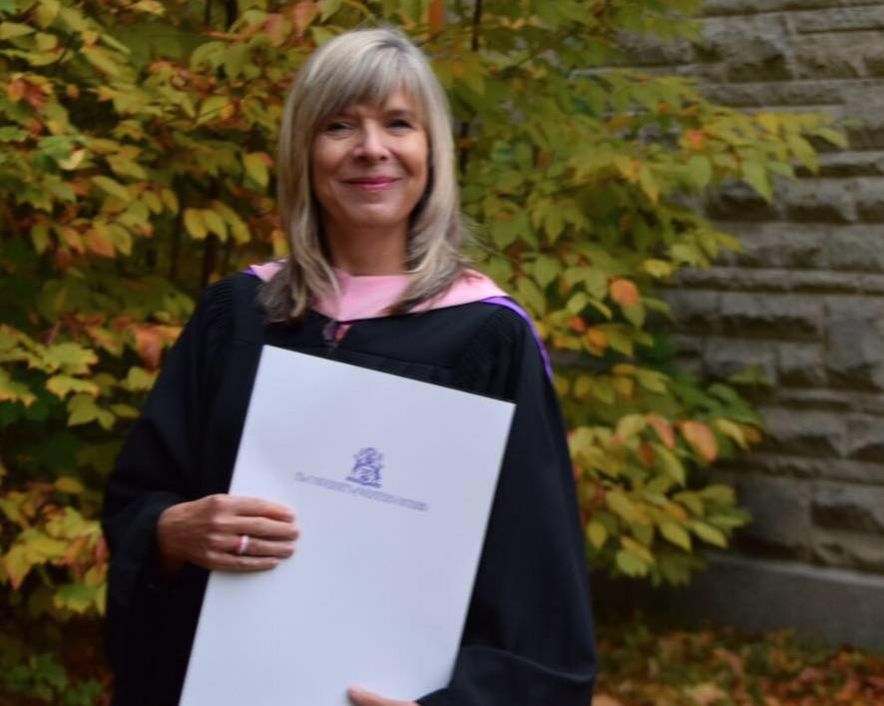 Sandie works at Power Glen Public School which is an elementary school in the District School Board of Niagara with about 420 students, located in St. Catharines, Ontario, Canada. My relationship with Musical Futures began in 2013 when I was searching for something new and found Lucy Green’s video about informal learning where she outlined her research in UK schools. This then led me to the Musical Futures website where I joined the international pilot project, Find Your Voice. I watched all of the vocal music and mobile technology workshop videos online and began connecting with teachers all over the world through the Find Your Voice professional learning community on social media. At the conclusion of the pilot project I travelled to London, UK to take part in the final sharing session, which was a highlight for me being able to meet many of my MF friends in person and also participate in a Gitika Partington workshop. Read more about Sandie’s Find Your Voice pilot project experience. This is my fifth year teaching music at Power Glen and it is rewarding to see the development of the Musical Futures vibe throughout the school as it has spread from the Grade 6’s in 2013 to now involving the whole school; early primary grades through to Grade 8. Students are setting goals for themselves and collaborating to make all kinds of music that they are interested in. We do everything from beat boxing and body percussion, to singing, playing the ukulele, and bucket drumming. Our Parent Council generously donated $3000 a few years ago, which allowed us to purchase a keyboard, one electric guitar, one bass, one small digital drum kit, two vocal mics, one Jamhub and amplifiers for these instruments. This one band setup is in constant demand and groups have to share this during class time as well as schedule rehearsals at recess and lunch breaks. We also have a class set of ukuleles and various small percussion instruments such as, hand drums, tambourines, etc. I have my own set of bucket drums and I bring in other of my own instruments to share – my doumbek, djembe, chimes, more ukes and my Mac computer, Blue Yeti microphone, etc. Following a summer music technology conference I attended at NYU Steinhardt, IMPACT, I have become increasingly interested in working with students to create music using digital technology. The Intermediate students are making track & hook style songs using Soundtrap on Chromebooks. The rewards of being involved in Musical Futures, in particular the informal music learning approach, has been an increase in a sense of inclusion and collaboration in the music program. Students are now much more willing to teach each other and help each other out. They don’t always look to me for all information and are building a growth mindset in music. Music isn’t viewed as a subject just for those who have “talent” – it’s for everybody. Students learn by listening really closely, not being afraid to try, making mistakes and working together. Musical Futures Canada run a teacher network and weekly chat which you can access by clicking HERE. Follow @MufuCanada on Twitter for more information Do you have a Musical Futures story? Email info@musicalfuturesinternational.org to share yours. 4/8/2017 1 Comment Musical Futures Hong KongWe spent a rocking 2 days in April 2017 at the Yew Chung International School working with primary and secondary teachers and tutors and students from the Education University of Hong Kong.
Highlights had to be the fantastic school chamber orchestra who spent an hour rehearsing the most beautiful music then joined the delegates for a spot of 'rapping and rhyming'. 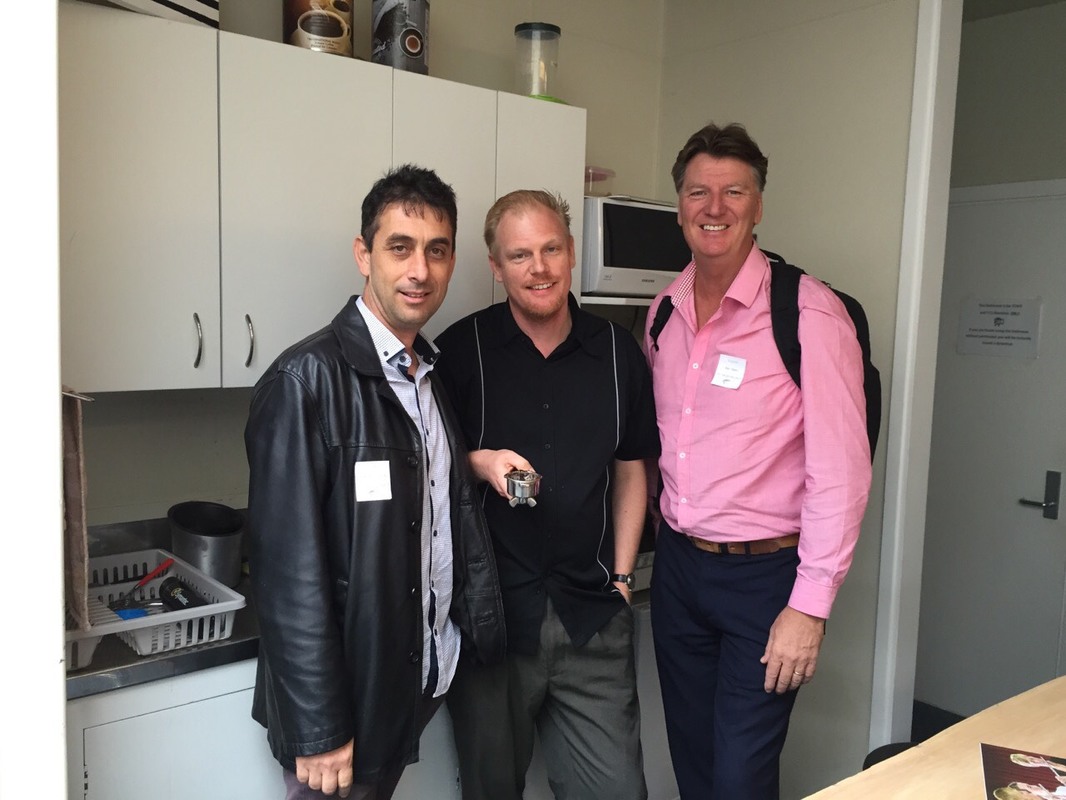 Musical Futures Australia Director Ken Owen and Champion Teacher Dino D'Azollini headed out to Auckland to run 2 days of workshops with over 50 teachers from across New Zealand. They also dropped by to see MF International Champion Teacher Hadley Ronayne at Long Bay College and Dino led a fab lesson with Y10s helped by a teacher backing band! Click to read Dino's Musical Futures Story Click to read more about the Musical Futures Program at Long Bay College 4/8/2017 0 Comments Informal Learning in BrazilOriginally published on www.musicalfutures.org/news
Fernando Rodrigues, a PhD student at the Federal University Minas Gerais, Brazil is carrying out a study entitled ‘Adaptations and applications of informal practices of learning music at the State School Professor Hilton Rocha’ and has been implementing informal learning practices of Musical Futures / Professor Lucy Green with students. His findings so far have been interesting. “Many students have never experienced a class of music in school. I proposed to the Principal the idea of informal learning classes, and now we lead three hours of a music class each week.” The class is split into one hour of workshopping activities, one hour of skills based learning – on guitar for example, and the third hour the students learn their own music informally. Instruments are scarce, with students bringing their own, using percussion instruments the school owns, or making use of cellphone apps/technology. “The director of the school doesn’t want to invest in instruments in case they are stolen. The school is located in a very dangerous, violent area.” says Rodrigues. In terms of impact, the school so far is seeing the following:
Where next? “The idea is to continue and if possible expand the music instrument practice and group activities, highlighting the informal practices of music learning. Students had the idea of starting to produce a written material about music theory based on the songs that students know and play, so students of the school can check when necessary.” Click to view the school website Informal practices in a formal context of musical education An experience report – by Fernando Rodrigues Written by Musical Futures Asia Co-Ordinator Stephen Jackman and originally published on https://mymusiced.wordpress.com/ Musical Futures has changed a lot over the past 10 years. Back in 2006 as a new teacher I tried In at the deep end using Cameo’s Word Up, the focus was very much on the teacher as the facilitator. My inexperience coupled with bad behaviour and my poor classroom management definitely was not a recipe for success. Jumping forward 5 years, I signed up for the Find Your Voice/Mobile Technology pilot. I knew a lot about using technology to create music but really lacked confidence in leading/ teaching singing so I thought this would be great for me and it was! At the time I was working in an all boys school in North London and the approaches I learnt completely transformed singing in school, suddenly all the boys were singing all the time and loving it. Here the focus was on workshopping as a class, giving students some initial training then sending them off to experiment for themselves- much more instructional and it worked really well. Just Play is the latest programme from Musical Futures, earlier this year I attended a training day with some great teachers from Croydon Music Service finding out more. Originally designed to support non-music specialist teachers in Primary Schools, Just Play has been enthusiastically snapped up by music specialists in both primary and secondary schools. Just Play is a skills building programme for Ukulele, keyboard, guitar, bass guitar and drums. It takes you through from the very beginning- how to hold the instruments, through reading tab, basic notation, chord symbols to being able to play and sing lots of songs as a whole class. I love it because the approach and fantastic resources (that come free with the training) are designed to ensure that students gain mastery of the basic knowledge and skills required for other approaches such as Find Your Voice and In at the Deep End. It perfectly complements them by providing a scaffolded pathway that can allow for the independent and informal learning that has made Musical Futures such a success. I’ve now redesigned my curriculum so that my classes start off with Just Play where they learn all the basics, then we move on to a rapidly accelerated Find Your Voice scheme (now that they can play way more than four chords) through to In at the deep end, where they are now longer thrown in at the deep end. They have the knowledge and skills to work independently, to choose their own songs, they know lots of chords but more importantly they know how to learn new ones. It has made a massive difference to my current year 9s ability in such a short space of time. I’m really looking forward to introducing Just Play to my new classes in September and I am excited to see how much of a difference it will make over the long term. Just Play is a million miles away from In At The Deep End and that’s one of the reasons why I love it. Students are not going off into groups to try and work things out for themselves, instead I can stand at the front of the class and using the resources teach, knowing that all of the students are going to be able to learn the basics across a range of instruments and really enjoy themselves at the same time. For more information on Musical Futures and the training courses they provide worldwide click here The Alice Smith School in Kuala Lumpur was the location for our very first SE Asia Musical Futures 3 day intensive training event in November.We were joined by delegates from more than 10 countries who came together to explore Musical Futures from the inside out in workshops led by Anna from MFUK and Ken from MF Australia. Unpicking everything from Find Your Voice to On Cue, Just Play and informal learning, we can’t wait to see how teachers take the approaches back into school and embed into their classes across the next year.
We also spent 2 days working with Liz, John, Martine and Nicole and their fabulous students at The British School in Jakarta. Leading classes with years 4,5, 7, 8 and 9 Ken and Anna modelled Musical Futures in action then worked with staff to look at how adopting Musical Futures approaches into their vibrant and growing department could support a whole school push towards enquiry-led learning and informal pedagogies. Teachers in SE Asia click to join our Musical Futures: SE Asia Facebook group Click to find out more about forthcoming Musical Futures International workshops coming soon! Musical Futures International Champion teacher Gary Posner was recently asked by, ECIS (The Educational Collaborative for International Schools), to write an article about the music learning here at The International School of Dakar for their Global Insights magazine. Click here to read all about how he implemented informal learning and Musical Futures approaches in Senegal |
AuthorWrite something about yourself. No need to be fancy, just an overview. Archives
August 2023
Categories |
